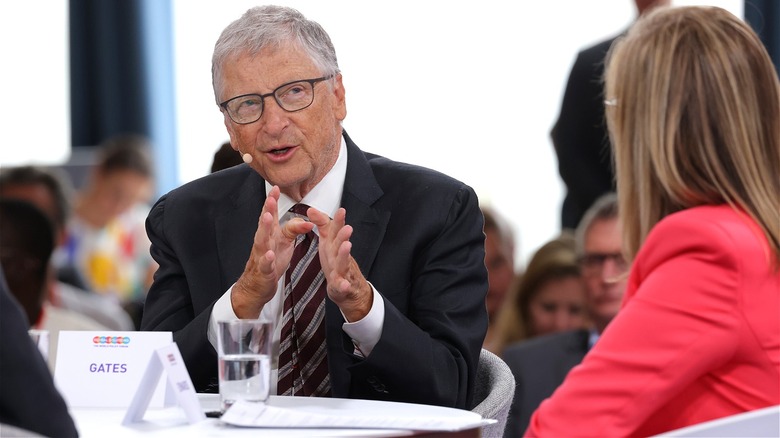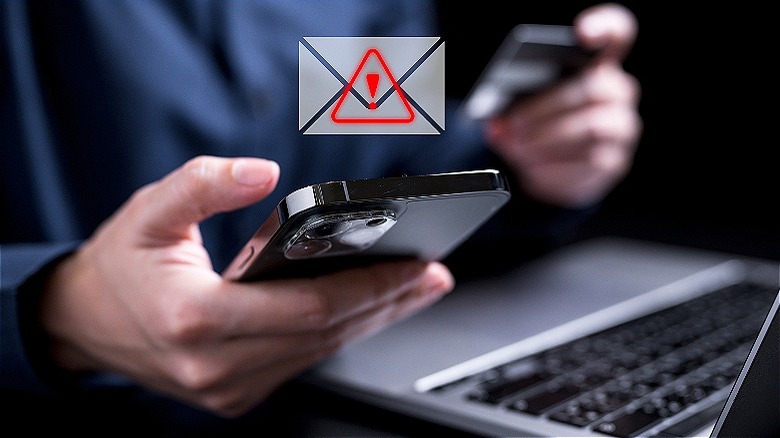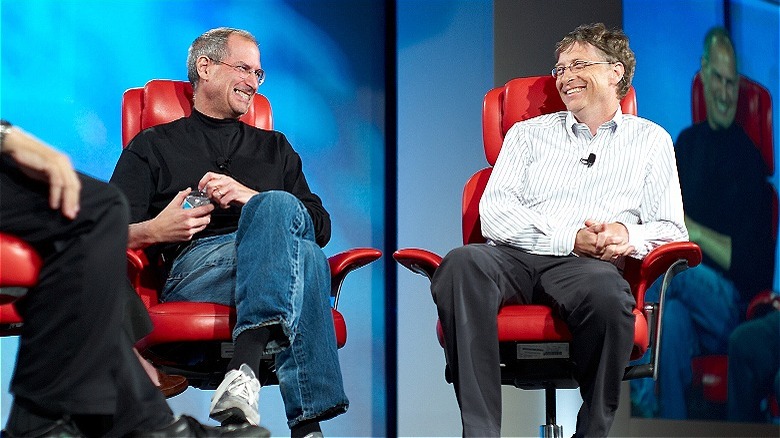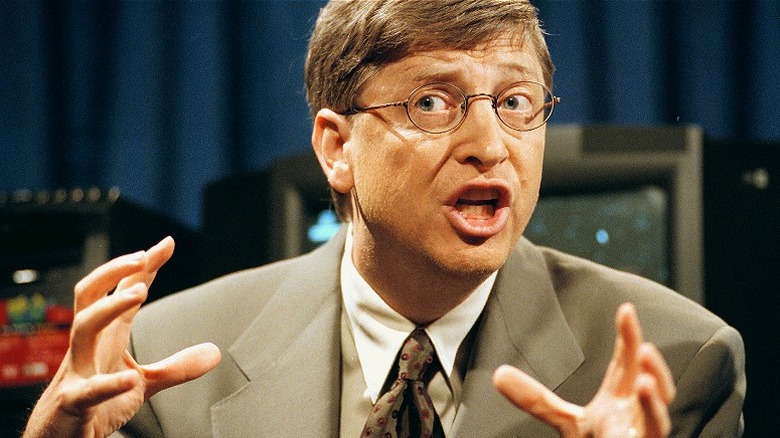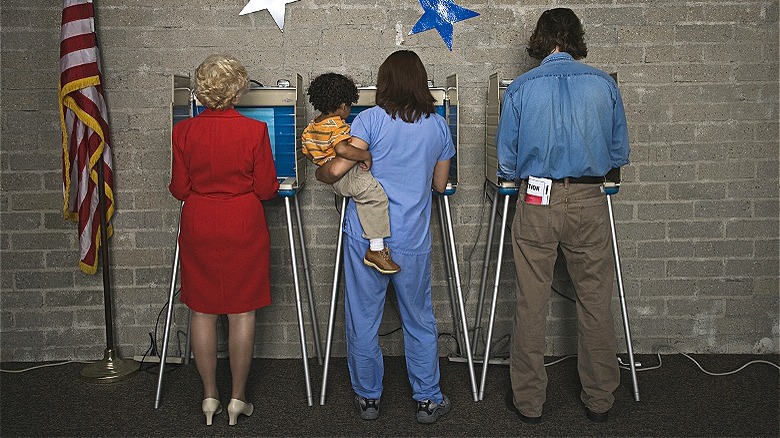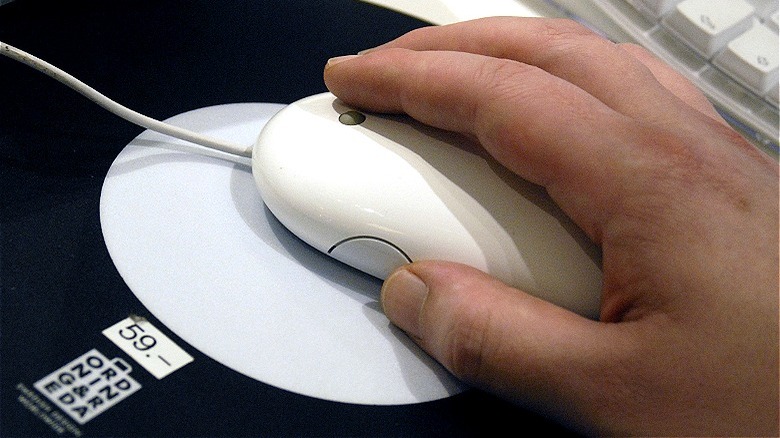Bill Gates' Worst Tech Predictions
People in science and technology rely on studies, statistics, ongoing research, or their own expertise in certain fields when they're asked to make predictions. And on the surface, such predictions may be more convincing to the layman, given how they come with facts and figures. Such predictions are the province of computer geniuses, and few computer geniuses have greater public recognition than Bill Gates. The man behind Microsoft knows his way around technology, and he's not been shy about his predictions for where the tech field will go.
But here's the thing about expert predictions: They're often wrong, as the world is too complex a system to make solid predictions too far in advance — no matter how deep your expertise runs, and intelligence isn't a surefire antidote to human tendencies toward bias, hubris, and a desire for control. In the modern world, tracking the development of technology and how it'll affect our lives has been positively littered with wild swings and misses. And mass media tends to memory-hole the failed predictions and elevate those who called seismic developments correctly as dependable sages.
Gates has been cast in that sage role in the past. He did accurately predict the rise of streaming services, a global pandemic within the 2020s, online banking, and social media. But he's also called quite a few things wrong. Here are some of Bill Gates' biggest tech prediction failures.
Gates thought spam email could be done away with
One of the greatest things about the internet is email, as it's enabled instant communication from across the world. And yet, one of the worst things about the internet is — email. Specifically, all those scams, ads, Trojan horses, and other assorted junk that's cordoned off in the spam folder. Spam is a royal pain and a potential hazard to online activity, and it's a problem that Bill Gates once predicted would be eliminated within two years. (On that note, here's how to try to get your money back if you've been scammed.)
At the 2004 World Economic Forum in Davos (via BBC News), Bill Gates suggested that three barriers could be used to weed out spam email. The first he proposed was a filter system that could catch suspect words or phrases. Acknowledging clever scammers could work around such filters, though, Gates next suggested a challenge, possibly an equation the sender's computer would have to solve or a puzzle that the email author would have to complete. Gates was most confident in the digital equivalent of a stamp — that is, a charge for each email sent.
Gates was confident Microsoft, which was utilizing all three methods of fighting spam, would lick the problem in the short term. To say he got that wrong is an understatement. As of 2021, nearly half of all emails sent could be classified as some form of spam, according to some estimates.
Gates declared OS/2 would be the 'most important' OS
While the rivalry between Microsoft and Apple went almost as far as the Supreme Court in the 1990s, a decade earlier, Microsoft's co-founder was singing a different tune. The company did a lot of software development for Macintosh computers in the 1980s; in fact, the first version of Microsoft Word was even created for Macs.
This was such an important part of Microsoft's business that Bill Gates appeared in a 16-minute promotional video in 1983 extolling the virtues of the Macintosh. His promotional comments for Apple included a prediction made in a November 1984 cover story for BusinessWeek (via CNBC) where he said "the next generation of interesting software will be done on the Macintosh, not the IBM PC."
Gates changed his tune within three years, after he and Steve Jobs had their falling out. Microsoft continued to develop software for other firms, of course, and in 1987, it developed the OS/2 together with IBM, which Gates declared at the time would be "the most important operating system, and possibly program, of all time." OS/2 would soon, however, be eclipsed by Microsoft's own Windows 3.0. But in retrospective assessments, both software lost out, as did anything by Apple, to the Unix system for its importance to the development of computers.
Gates allegedly underestimated the internet + shopping
Attempts to use the internet for commercial possibilities date back to 1985, when the first .com address was registered to tech firm Symbolics; it'd be a long time before others caught on, though. That year, only five more .com domain names were registered, and skeptical voices continued to doubt the internet's impact on our lives and the global economy well into the 1990s. Even after a million domain names were registered, there were still skeptics.
Bill Gates was among those who didn't think the internet would be a major commercial vehicle. In the first edition of "The Road Ahead," a book he coauthored, Gates wrote he didn't think there was sufficient technology to entice people to the internet for their shopping needs. Further, he's alleged to have told a 1994 trade event he felt the internet would have no viable commercial applications for another decade.
Those remarks are unsubstantiated. But Gates did concede years later to a group of University of Washington students (via CNET) that he considered the internet a "fifth or sixth priority" in the early '90s, and only later embraced it as the way of the future. (Check out money tips and tricks you can steal from Bill Gates.)
Gates thought online voting would take off
Sometimes, technology fails to catch up to expectations set for it. As Bill Gates put it in "The Road Ahead" (via Computer World), "We always overestimate the change that will occur in the next two years and underestimate the change that will occur in the next 10." At other times, technology might take off as expected, but society opts not to apply it the way experts like Gates initially predicted.
In "The Road Ahead," Gates wrote, "Voters will be able to cast their ballots from their home or their wallet PCs [his term for what would become smartphones] with less risk of miscount or fraud." And indeed, people in the U.S. today do cast their votes online — for reality TV contests, for promotional gimmicks, and for publicity stunts. But for elections? The consensus among cybersecurity experts is that, as of 2024, online voting in elections would not be secure enough to implement at a large scale.
Some states do allow limited ballot returns through email in the case of military, overseas voters, or voters with disabilities. And other nations have expanded online voting; Estonia's 2023 parliamentary election was done primarily through online ballots, for example. But the American system is much larger, decentralized, and more consequential. The safeguards needed against fraud in widespread online voting with current technology would require a paper trail anyway. (Also, by the way, this is the most money ever spent on a presidential campaign.)
Gates predicted the computer mouse would phase out
Bill Gates has been an early promoter of many tech devices that caught on in a big way, even if the timeline didn't always agree with his actual predictions. For example, he foresaw the popularity of e-books, the dominance of tablets in the home-computer market, and virtual assistants. But in 2008, at the Consumer Electronics Show, Gates seemed to predict a move away from computer mice and keyboards as the primary means of interface with a computer and a new dominance of voice, pen, and touch recognition.
Speech input is with us now, as is the stylus and the touchscreen. But chances are, if you're reading this on a PC or laptop instead of your phone, you have a keyboard and a mouse. While journalists and tech blogs have echoed Gates in anticipating the displacement of computer mice for other forms of interface, they're still in common use and remain the best interface tool for many tasks. And mice, which were first invented over 50 years ago, have continued to evolve to suit the changing needs in modern computers, though at some cost to simplicity of use.
